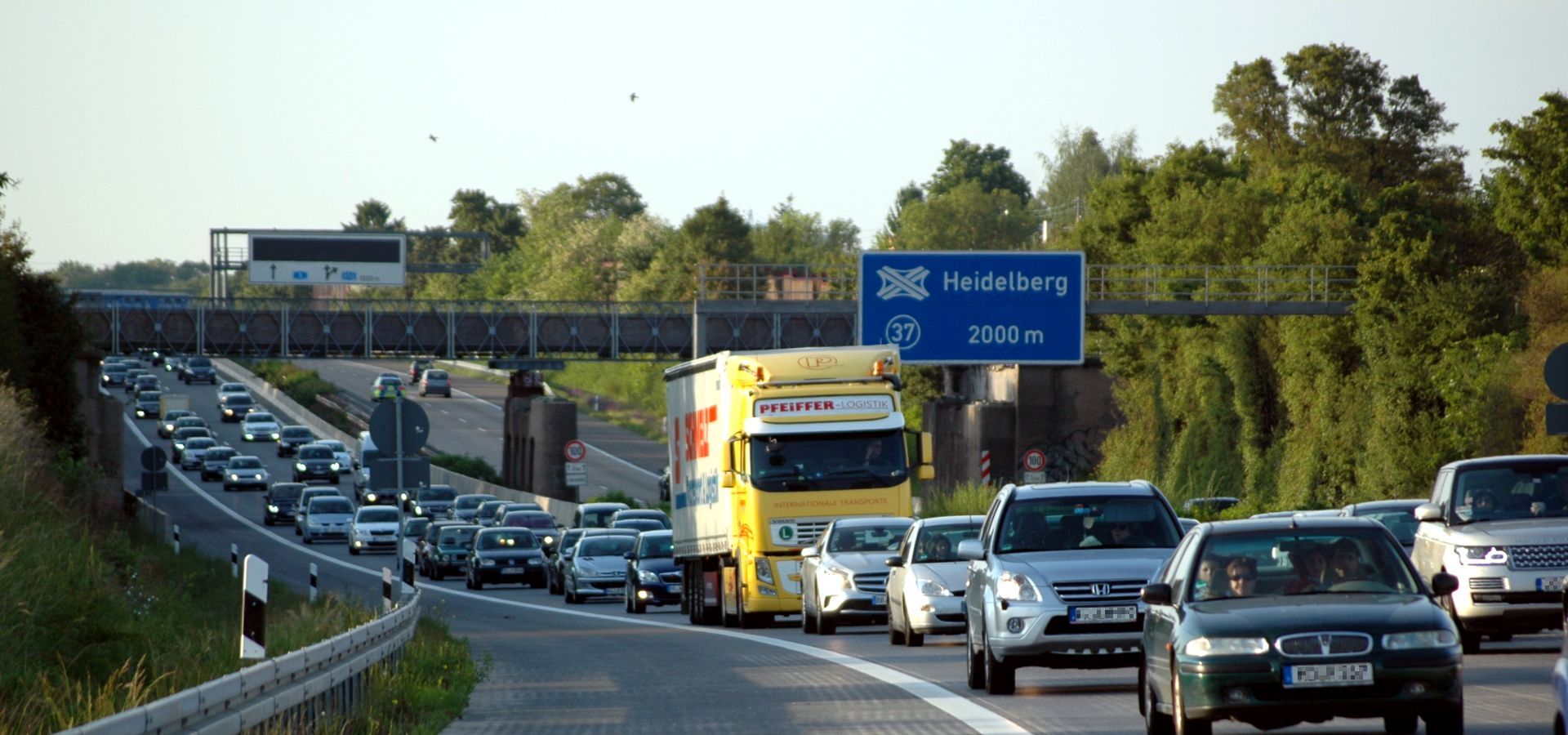Don’t add Germany to the list of countries officially considering banning sales of cars running on gasoline or diesel just yet. But several prominent people are pushing the government to take steps in this direction. One of them is Energiewende Undersecretary Rainer Baake. Craig Morris explains.

Cars running on diesel or gasoline – are they going to be banned soon in Germany? (Photo by Radosław Drożdżewski, modified, CC BY-SA 3.0)
Austria, Norway, the Netherlands and India are all officially looking into banning sales of new cars with conventional internal combustion engines (ICEs) in the 2020s. In the wake of these reports, German Green parliamentarian Dieter Janecek called for such a ban in Germany as well (report in German). The people who would make such decisions – such as Transport Minister Dobrindt – have not yet commented on the idea, however.
Last week at the Berlin Energy Days, Ministry for Energy’s Undersecretary Baake also stated that Germany should implement such a ban by 2030 (report in German); most others are shooting for 2025 – Austria, for 2020. A few days later, Andreas Knie – a transport expert who advised Deutsche Bahn (German railway company) on the rollout of its bicycle sharing system – said he fundamentally agrees with Baake, though he would also shoot for 2020 (report in German).
How realistic is the proposal in Germany?
Not very. Germany has a lot of jobs in the automotive sector – around 800,000, making this industry the largest in the country (there are some 370,000 jobs in renewables). Banning sales of new ICE vehicles will not be easy in Germany, but we could start with cities. Cognizant of the higher-than-admissible pollution levels in numerous German cities, the European Commission finally managed to force the German government last week to implement a Blue Sticker for diesel vehicles. The EU’s sticker system ranges from red to yellow and green. Based on vehicle emissions, cars with different colored stickers are not allowed to enter certain parts of town.
The proposed Blue Sticker would add nitrous oxide emissions to the tally. At the moment, it is unclear when exactly this sticker will take effect; the government merely announced last week its commitment to rolling out the sticker. While the new sticker will dramatically change conditions for diesels, gasoline cars will not get off scot-free. Though considerably cleaner than diesels in terms of general particle emissions, modern gasoline engines have trouble with NOx in particular – exactly what the new sticker focuses on.

Like most German cities, Berlin still has a fairly basic – and lax – implementation of the environmental-sticker system. Only cars with a green sticker can enter the central part of town inside the ring orbital of the metro system. Almost all cars sold in the past decade have a green sticker, however. Source: City of Berlin
The mere proposal is a strong signal
But even if Germany does not outright ban sales of non-electric vehicles in the 2020s, the environmental sticker and the discussion about a ban will eventually change the tone of the debate. State governments have some leeway in defining the Green Zone (based largely on measurements of pollutant concentrations). People interested in buying a car will begin to take account of future restrictions on that vehicle’s mobility.
Other countries without such a strong dependence on carmakers will probably move faster than Germany in restricting ICEs. The effect on Germans will be twofold: first, the German government will be embarrassed into keeping up with the crowd; and second, German car owners will understand that their cars are of limited use on vacation.
As a result, car owners will gradually no longer view their vehicles as the most convenient means of transport. But the best part is that people are free to choose how they react. Rebates on electric vehicles “merely” incentivize purchases of EVs; in that respect, they are more industry policy than environmental policy. But people can react to restrictions on ICEs by purchasing an EV or hybrid, joining a car-sharing scheme, taking public transportation, riding a bike, walking, or any combination of the aforementioned.
Slowly, the future is arriving. Cars running on gasoline and diesel will be a rarity in many places within a generation. Carmakers who doubt this may soon find themselves relegated to museums and sightseeing tours – right next to the horse and buggy. While America produced Tesla and the Japanese produced Prius, the Germans were busy designing defeat software.
How many Germans does it take to change a lightbulb? One. (Duh.) How many will it take to change the country’s automotive sector? A large majority. Or we can do this the painful way: by letting the US EPA and Tesla change German carmakers for the Germans.
Craig Morris (@PPchef) is the lead author of German Energy Transition. He directs Petite Planète and writes every workday for Renewables International
Yes, I think that at some point this will go very rapidly in the big cities. I see these latest calls as a further attempt to convince the German car industry that the hour is very late. But some of the Mittelstand is ahead of the game, for unknown reasons I have been getting a lot of banner ads from Menneke (charging plugs).
Hopefully Germany will begin much sooner than later to make going electric FUN, not to mention less costly for owners as they will be able to recharge them at home if they choose.
Many are looking to VW to lead this shift in manufacturing, since they had been caught in diesels-gate.
Volkswagen could became Voltswagen , the world leader on Electric (Volts) Cars ?